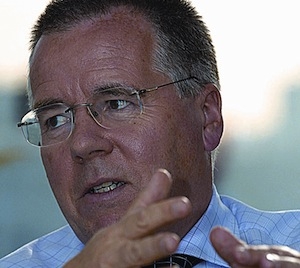I ended my last commentary by expressing concern for all senior managers working with SIPPs – whether as a provider or adviser – given the ongoing regulatory uncertainty particularly around the responsibilities for investment due diligence.
I drew attention to the new conduct rules that will come into force for all senior managers and staff with effect from 9 December as a result of the new Senior Managers and Certification Regime (SM&CR).
The SM&CR has had compliance and HR consultants rubbing their hands with glee. For months they have been working with businesses and firms on preparatory work for the new regime, including new role and job descriptions, revised organisation charts and training. All of it has been necessary but it’s easy to forget that in the words of FCA head Andrew Bailey the objective of SM&CR is to instil a “healthy, customer-centric culture at the heart of every firm.”
Recently a colleague of mine at Investor in Customers (IIC) attended an SM&CR forum run by a trade body. Unsurprisingly the audience was made up largely of compliance and HR managers. In the opening remarks the chair drew attention to the above quotation from Andrew Bailey. I understand that in the three hours that followed there was not a single mention of the customer!
If firms and businesses think that SM&CR is simply a box ticking exercise I fear they will have a rude awakening. As Andrew Bailey also made clear in comments made in August this year “Rules are a crucial mechanism for delivering outcomes but can also be interpreted so rigidly as to become a box-ticking exercise. …. Any organisation that prioritises being within the rules over doing the right thing, will not stand up to scrutiny for long.” I believe these comments are very important when attempting to understand the practical implications of SM&CR.
Under the SM&CR regime there are five conduct rules that apply to all staff with four additional rules for senior managers. The fourth conduct rule states “you must pay due regard to the interests of customers and treat them fairly.” Nothing new in that you may be thinking after all the FSA set out the responsibilities of providers and distributors for the fair treatment of customers in their policy statement PS07/11 back in 2007.
However statistics from over 10 years of IIC assessments reveal that over 70% of employees rate the customer experience and service they provide higher than their customers do. When we dig a little further we find that senior managers display the biggest gap between their own views and the reality of the customers own experience.
I recently attended the PIMFA annual conference where the FCA director of advice and insurance, Debbie Gupta, called on advisory firms and senior managers within those firms to demonstrate how they are delivering a culture that rewards good conduct “and that sets out clear accountability and encourages good decision making.” She went on “We want evidence that people are fit and proper”.
It seems to me that in considering the fourth conduct rule all senior managers need to think seriously about these comments and ask how they are going to evidence that they and the staff for whom they are responsible are “paying due regard to the interests of customers and treating them fairly”. Monitoring complaints is fine but doesn’t normally reveal the full picture. Similarly awards won at the growing number of industry events while looking good in the trophy cabinet are unlikely alone to provide the evidence that is needed.
A recent survey undertaken by IIC of some attendees at the PIMFA conference suggests that one in four businesses don’t carry out any regular assessment of how they are meeting their customers’ needs. This will need to change.
It was Arthur C Nielsen, often regarded as the founder of modern market research, who said “The price of light is less than the cost of darkness.” That seems particularly apt in this context. Staff may well understand what’s important for customers but from 9 December businesses need to put in place methodology and processes to evidence this. This cannot just be tick box exercise.
Businesses should think seriously about undertaking an independent assessment to make the most of the improvements to customer service that SM&CR could bring if adopted wisely. There are many examples of businesses where improved customer experience scores correlate with improved profitability.
John Moret is principal of MoretoSIPPs consultancy and one of the UK's most experienced SIPPs experts, commentators and speakers. He has worked for Suffolk Life and several other SIPPs providers. He is also chair of an advisory business Intelligent Pensions and of CX insight business Investor in Customers.

